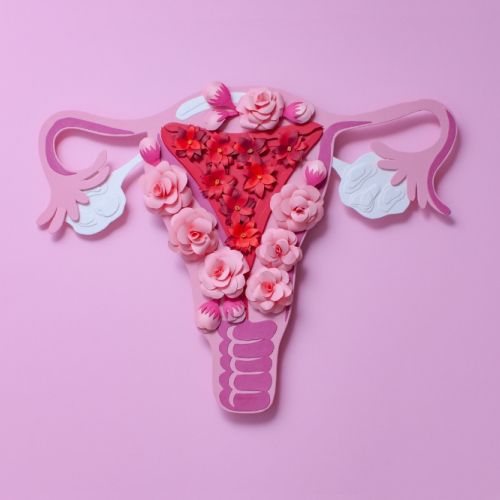Myths and Facts About Embryo Freezing

Embryo freezing is a procedure that’s advanced tremendously since the first successful case in the late 1980s. To freeze embryos, an embryo is created via in vitro fertilization, a process in which eggs are collected from the woman and fertilized with sperm in a lab.
After letting them develop for a few days, we then freeze any quality, viable embryos for later use. They’re kept in sub-zero temperatures in liquid nitrogen containers.
There’s not just one reason to freeze embryos. You may choose to freeze your embryos to preserve your long-term fertility. If you’re undergoing cancer treatment, hormone treatment, or another procedure that affects your fertility, creating healthy, viable embryos that you or a surrogate can carry to term in the future makes a lot of sense.
We also recommend couples who choose to undergo preimplantation genetic testing freeze their embryos after they’re tested. It can take a week or more to get results back, and freezing is the safest way to preserve the embryos.
If you go through the long, taxing in vitro process, you may also choose to freeze any extra viable embryos for another pregnancy some time in the future. Transfering a frozen embryo means you won’t have to undergo as much uncertainty and expense as your first in vitro venture.
At California Center for Reproductive Health, we have extensive experience in freezing embryos. Here’s what you should know about the procedure to determine if its something you should consider on your fertility journey.
Myth: It’s harder to achieve a viable pregnancy with a frozen embryo
Fact: Embryo transfer using thawed frozen embryos is common in fertility practices today, including at California Center for Reproductive Health. Your chances of the frozen embryo turning into a successful pregnancy are similar to, if not better, than if you used a non-frozen embryo.
Myth: Frozen embryos can’t be stored for long
Fact: Embryos may be frozen indefinitely without risking the integrity of the cells. The standard storage period is usually no more than 10 years, but that’s because of cost to the couple and changes in fertility needs, not because of the viability of the embryo. Embryos may be kept up to 55 years in some circumstances.
Myth: Embryos that have been frozen are of inferior quality
Fact: We select only the highest quality embryos for freezing, which means that it’s likely that they will sustain the freeze-thaw cycle. The procedure is completely safe and effective.
The babies born from frozen embryos are no different from a baby born without fertility treatments.
MYTH: You have no control over what happens to your embryos
Fact: On the contrary, you have complete control over your frozen embryos. Before they go into storage, you sign several consent forms to explain how long your embryos will be stored. It will also be made clear as to what happens to the embryos if you or your partner are incapacitated in some way. You dictate whether the embryos may only be used for your treatment or if they may be donated to another couple or for research.
You can also specify other conditions around the storage and use of your embryos. We make embryo freezing a very thorough and transparent process.
At California Center for Reproductive Health, our specialists are ready to answer your fertility questions, including those surrounding embryo freezing and in vitro fertilization.
Call our nearest office in Encino, Valencia, Alhambra, or West Hollywood, or use this website to request a consultation. Our compassionate staff works with you to determine the best way to overcome infertility and create your family.
Eliran Mor, MD
Reproductive Endocrinologist located in Encino, Valencia & West Hollywood, CA
FAQ
What does a reproductive endocrinologist and infertility specialist do?
Reproductive endocrinology and Infertility is a sub-specialty of Obstetrics and Gynecology. In addition to managing medical and surgical treatment of disorders of the female reproductive tract, reproductive endocrinologist and infertility (REI) specialists undergo additional years of training to provide fertility treatments using assisted reproductive technology (ART) such as in vitro fertilization.
Reproductive endocrinologists receive board certification by the American Board of Obstetrics and Gynecology in both Obstetrics and Gynecology and Reproductive Endocrinology and Infertility.
When should I see an REI specialist?
In general, patients should consider consulting with an REI specialist after one year of trying unsuccessfully to achieve pregnancy. The chance of conceiving every month is around 20%, therefore after a full year of trying approximately 15% of couples will still not have achieved a pregnancy.
However, if a woman is over the age of 35 it would be reasonable to see a fertility specialist earlier, typically after 6 months of trying.
Other candidates to seek earlier treatment are women who have irregular menses, endometriosis, fibroids, polycystic ovary syndrome (PCOS), women who have had 2 or more miscarriages, or problems with the fallopian tubes (prior ectopic pregnancy).
What are the reasons we are having trouble conceiving?
Approximately 1/3 of the time cause for infertility is a female factor, 1/3 of the time a male factor, and the remaining 1/3 a couples’ factor.
At CCRH, we emphasize the importance of establishing a correct diagnosis. Both partners undergo a comprehensive evaluation including a medical history and physical exam.
Furthremore, the woman’s ovarian reserve is assessed with a pelvic ultrasound and a hormonal profile. A hysterosalpingogram (HSG) will confirm fallopian tube patency and the uterine cavity is free of intracavitary lesions. A semen analysis is also obtained to evaluate for concentration, motility, and morphology of the sperm.
Additional work up is then individualized to direct the best possible treatment option for each couple.
What is IVF? What is the process like?
In vitro fertilization (IVF) is the process that involves fertilization of an egg outside of a woman’s body.
The process starts with fertility drugs prescribed to help stimulate egg development. In your natural cycle, your body is only able to grow one dominant egg, but with stimulation medication we can recruit multiple eggs to continue to grow. After about 8-10 days of stimulation, the eggs are surgically retrieved and then fertilized with sperm in a specialized laboratory. Fertilized eggs are then cultured under a strictly controlled environment within specialized incubators in the IVF laboratory for 3-5 days while they develop as embryos. Finally, embryos (or an embryo) are transferred into the uterine cavity for implantation.
Should I have IVF?
Before deciding if IVF is the right choice, it’s important to sit down with an REI specialist to discuss available treatment options. For some people, other methods such as fertility drugs, intrauterine insemination (IUI) may be the best first choice treatment. At CCRH, we believe each individual couple is unique and not everyone needs IVF.
Is the IVF procedure painful?
While not painful, the fertility medications may some side effects including headaches, hot flashes, mood swings, and bloating. The injection sites may also bruise.
Will IVF guarantee a baby?
Unfortunately, no. Many people think once they start IVF it’s a matter of time that they will be pregnant and have a baby. But according to national statistics per the Society of Assisted Reproduction (SART), on average 40% of assisted reproduction cycles achieve live births in women under age 35. The chances of success then continue to decrease with advancing age.
At CCRH, we employ only evidence-based interventions to ensure patient safety and optimal outcome. While we cannot guarantee a baby, we guarantee that you will receive the best, most advanced, personalized care to help you maximize your chance of a baby.
What is the success rate for IVF?
The average IVF success rate (success measured in live birth rate) using one’s own eggs begins to drop around age 35 and then rapidly after age 40. This is due to the decline in egg quantity and egg quality as a woman ages.
Our clinic’s success rate consistently beats the national average year after year.
Do insurance plans cover infertility treatment? How much does IVF cost?
Individual insurance plans often do not have any coverage for infertility treatments. If you have a group plan, you can call members services to see if they have coverage for infertility (including consultation/workup and IVF).
After your consultation with our REI specialist, one of our dedicated account managers with sit with you to go over the cost of treatment.




